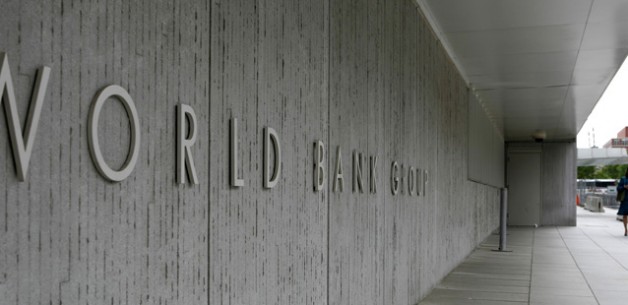Washington, DC—Trustees of the Calvert Social Investment Fund are considering a ban on purchasing World Bank bonds, in response to proposed changes to the Bank’s Environmental and Social Framework (ESF) that weaken protections for Indigenous Peoples.
Since 2012, the Bank has been revising the ESSF, which is intended to identify and minimize harm caused by its projects. The process has been criticized for failing to comply with international human rights standards on a number of fronts. Calvert is among the growing number of investors that recognize the staggering financial losses incurred by companies and governments that destroy ecosystems, violate human rights, or fail to obtain community support for their operations. In February 2016, the CEO of Blackrock, the world’s largest asset manager, called on companies to pay more attention to environmental and social issues in order to generate sustainable returns.
In a letter addressed to Bank President Jim Yong Kim, trustees expressed concern that Calvert’s long history of constructive engagement with the Bank on Indigenous Peoples, human rights, and gender is being eroded, prompting them to “reconsider whether continued involvement with the Bank aligns with our sustainable and responsible investment practices.” The letter mentions the Bank’s recent decision to waive the Indigenous Peoples Safeguard for an agribusiness project in Tanzania because the government claims there are no Indigenous Peoples in the country. This sets a precedent that will likely trigger the denial of Indigenous Peoples’ existence in many parts of the globe, in blatant violation of Indigenous Peoples’ right to self-determination.
In February 2015, Calvert joined Boston Commons Asset Management, NEI Investments, and other investors worth $125 billion in assets under management to sign a letter urging the Bank to ensure the ESSF is consistent with the UN Declaration on the Rights of Indigenous Peoples and the UN Guiding Principles on Business and Human Rights.
“In addition to ignoring its devastating toll on Indigenous Peoples and other vulnerable communities, the Bank is failing to recognize major changes that are happening in the market,” says Rebecca Adamson, Calvert trustee and Founder and President of First Peoples Worldwide (FPW). “Companies are seeking business climates that are suitable to the acquisition of a social license to operate. By weakening the environmental and social conditions tied to its loans, the Bank is leading borrower countries away from policy reforms needed to attract foreign investment.” In 2014, FPW published the Indigenous Rights Risk Report, which quantified corporate risk exposure to violating Indigenous Peoples’ rights.
Currently, the Bank is deliberating the ESSF and is expected to release the final draft for public review on July 20th, 2016. A final vote on the new policies by the Bank’s Board of Directors is set for August.
Contact
Nick Pelosi
Corporate Engagement Director, First Peoples Worldwide
npelosi@firstpeoples.org
917-324-3160
Julia Radomski
Information Services Coordinator, Bank Information Center
jradomski@bankinformationcenter.org
202-624-0636

